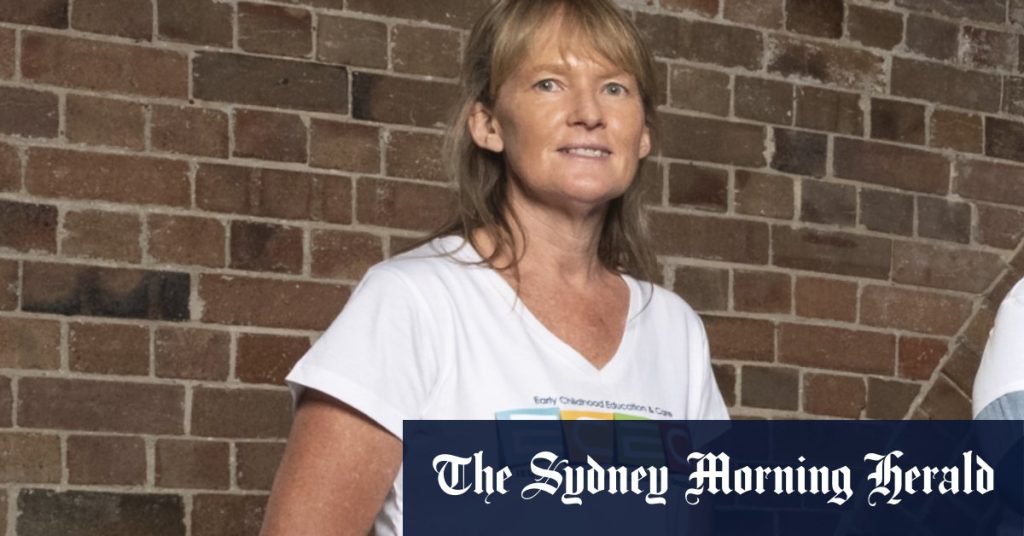The current pay for the most experienced teachers in New South Wales schools is $122,100 a year, while preschool teachers receive a maximum pay of $87,000. This discrepancy in pay has led to staff shortages in childcare centers across the country. The Australian Childcare Alliance estimated that there were approximately 11,000 daycare places that families went without due to these shortages. Union member Melinda Gambley, who has worked in preschools for 21 years, expressed concern that staff were leaving the industry because they could not earn a wage that covered living costs. Phillipa Maher, a union member with 35 years of experience in early childhood education, highlighted the need for more resources to boost workforce numbers in the sector.
The NSW government recently announced plans to fast-track the construction of 100 new preschools attached to schools in an effort to address the workforce crisis in early childhood education. However, workers in the sector are seeking fair wages that reflect their qualifications and the value of their work. The union representing preschool workers is pushing for pay parity, rather than just a pay rise, in line with other public sector workers who have received significant salary increases in recent years. Paramedics, graduate teachers, and firefighters have all received pay rises above 25%, with some ranging up to 29%. The union representing firefighters is currently seeking a 20% pay rise from the government and plans to use newly created federal provisions to support bargaining efforts.
The Minns government allocated $3.6 billion last year to fund public sector wage increases, emphasizing the importance of supporting workers in these essential service industries. Education and Early Learning Minister Prue Car stated that the government acknowledges the valuable work done by early childhood educators and is supportive of ensuring that they receive fair wages. However, the union representing preschool workers has yet to lodge a formal claim for a pay rise in the Fair Work Commission, so it remains to be seen how the process will progress. The demand for preschool places far exceeds the current supply, leading to lengthy waiting lists and challenges in meeting the needs of families seeking childcare services.
The union’s request for a pay rise in early childhood education comes at a time when other public sector workers have successfully negotiated significant salary increases. The Minns government has acknowledged the need to address the wage gap and support workers in essential service industries. The push for pay parity in early childhood education reflects the growing recognition of the importance of this sector in supporting families and children. With ongoing shortages in staffing and a high demand for preschool places, it is crucial for the government to prioritize fair wages for educators in order to attract and retain qualified professionals in the field.


